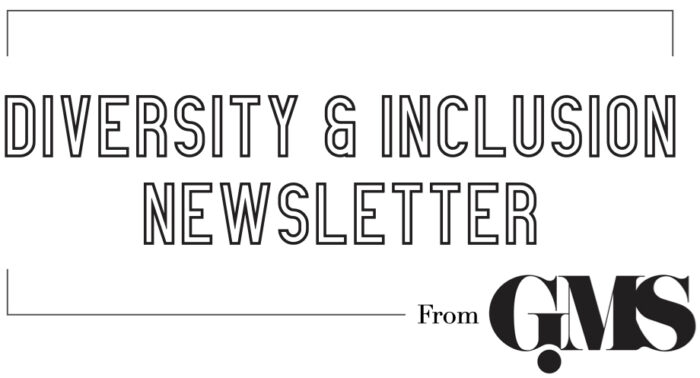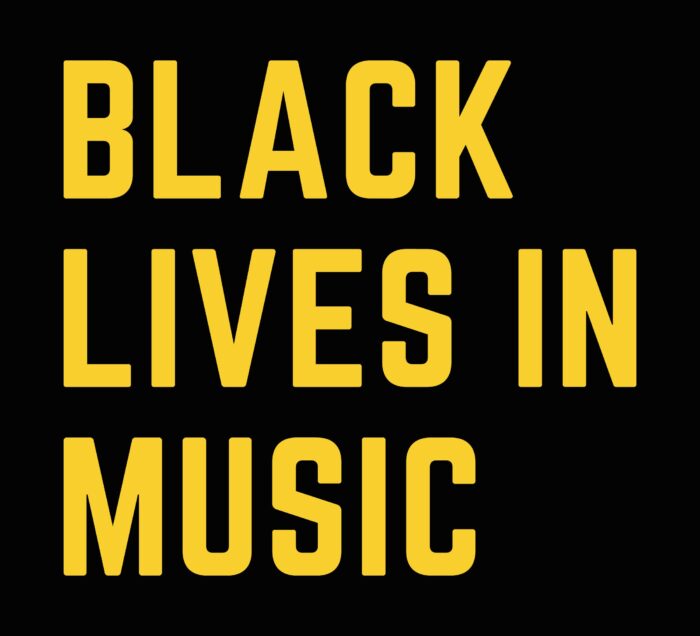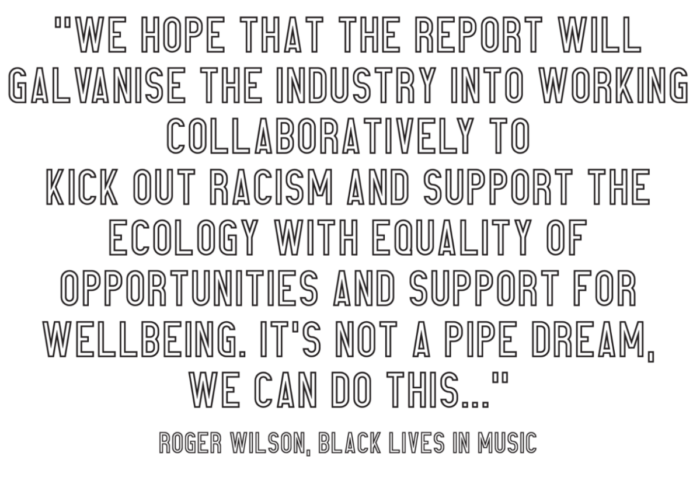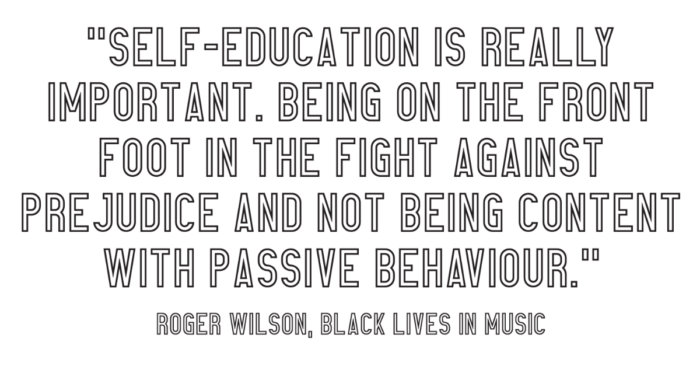By The Diversity & Inclusion Committee


After partnering with Black Lives in Music this year, the GMS recently ran two invaluable anti-racism workshops for its members, led by BLiM Director of Operations, Roger Wilson. Roger has many years of experience on both sides of the stage as a musician, educator, tour manager and administrator, and runs BLiM alongside Chief Executive Charisse Beaumont.
Last month also saw the release of the first ever BLiM survey report, ‘Being Black In the Music Industry’, understanding the issues of diversity in the music industry. Roger kindly shared his time with us to reflect on the report findings and what it says about the music industry at large.

BLiM have released the results and findings of their survey which set out to capture data on the experience of music industry executives and creators.
The evidence is irrefutable: “…near two thirds, (63%) of Black music creators that have experienced direct / indirect racism in the music industry and the nearly ¾ of respondents (71%) that have experienced racial microaggressions. 35% of Black Music creators have felt the need to change their appearance because of their race / ethnicity, rising to 43% of Black women.” (Roger)
As Roger emphasises: “To be clear, I do not believe these stats and facts are surprising to Black people – the report confirms that this is the experience for the majority of Black people in the industry.”
And we need to do something about it.
When asking Roger about their hopes for the impact of the report, he continues: “As my esteemed colleague, friend and BLiM co-founder Charisse Beaumont would say; data rules supreme. Data gathering underpins a key part of the BLiM model. There will be more reports on the Black experience but also on corporate efforts to diversify. These will provide opportunities for benchmarking progress and to give us a better understanding of the direction of travel, year on year.
“…[We] hope that the report will galvanise the industry into working collaboratively to kick out racism and support the ecology with equality of opportunities and support for wellbeing – it’s not a pipe dream, we can do this, but we need to be brave, both individually and collectively while working together.”
It only takes reading Caroline Criado-Perez’s book, ‘Invisible Women’, to reflect on the impact that a lack of representative data can have on societal infrastructures and decision-making, so let’s make sure these stats do not go unheard. This intersection of race and gender is also reflected in the statistics.
Roger: “Looking at the orchestra sector, in 1970 4% of the population of the world’s professional orchestras were women, this rose to 12% in the early 80’s and now currently stands at over 40%. This direction of travel is thanks to a concerted attempt to address gender inequality in the classical sector. We need to adopt the same approaches to supporting Black women in the industry. We need to be honest about where we are with the intersection of race and gender – evaluate, acknowledge, discuss and act. The sector needs to provide transparency in data on pay as a way to start addressing the issue of pay disparity.”
Moreover, the pay statistics in the report reveal that: “White music industry professionals earned more than Black professionals for their work within the industry pre-covid (£2,459 vs £1,964 per month). Black female industry professionals earned £1,811 per month compared to white women industry professionals who made £2,270 (£459 more per month) pre-covid.”
So how can we as an industry make a difference?
Amongst many projects, Roger comments on BLiM’s involvement with the PRS Foundation, through which BLiM has “helped young musicians with performance opportunities, unemployed talented people of colour to get exciting jobs, organisations to recruit a diverse team at governance level and we have supported individuals with their spiritual and pastoral needs – they’re all success stories!”

Moreover, BLiM held round tables inviting initial responses from the industry, which they feel have been positive.
“In terms of informing our future vision and aims, I think it’s safe to say that the warmth in the room has given us real encouragement to dream big and aspire to help our industry colleagues to bring real and discernible change in the industry.”
As a starting point for progress in the next five years, Roger outlines just a few of their hopes for the industry:
- An industry-wide acknowledgement that the community is not representative.
- An honest approach that starts with discussion and leads to change.
- A support system for mental wellbeing for all but including bespoke support for Black people who suffer disproportionately with issues of mental health in the UK.
- Better investment from the industry in grass roots opportunities for everyone.
- Equal pay regardless of colour, ethnicity, gender, sexuality.
So where can we go from here?
Roger: “Self-education is really important. Being on the front foot in the fight against prejudice and not being content with passive behaviour.”
What You Can Do
If you’re interested to know how you can get involved, please reach out to the
GMS Diversity & Inclusion Committee at diversityandinclusion@guildofmusicsupervisors.co.uk
For mental health resources and therapy: Black Minds Matter
The UK and European Guild of Music Supervisors

